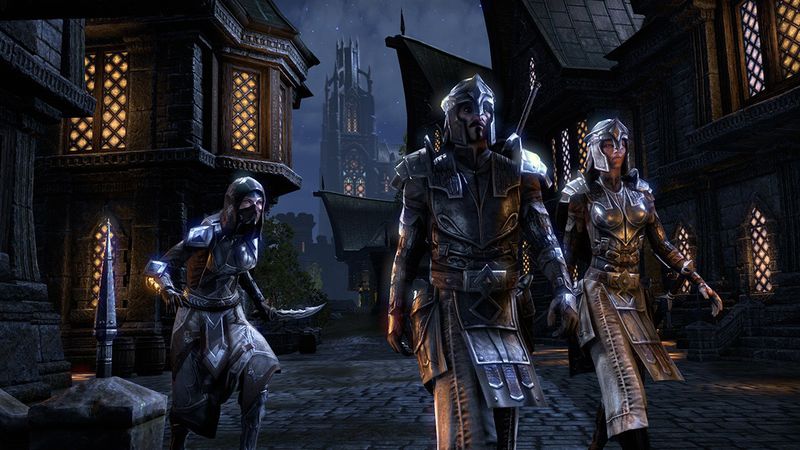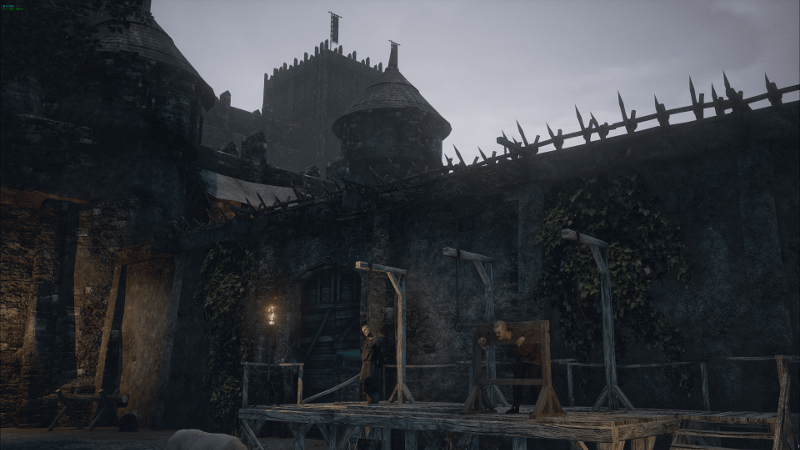Gamers are often presented with choices. A faction, a character, a way of completing an objective. These decisions are supposed to change the way you play or even experience the game, but too often these choices are shallow and meaningless – what happened to games that weren’t afraid to punish you for a bad decision? Why have consequences disappeared?

An example, though not the only game that is guilty of lacking consequences for player actions: Skyrim. A big part of the draw of this game is the huge amount of freedom that it affords the player; freedom of exploration, allegiance, and so on. You can pick a direction and just go in Skyrim and other such games, and you’ll be bound to uncover some kind of quest just around the corner. Similarly, if you want to join the Mages Guild, you can. Want to be an assassin? You can. Ignore the main quest completely and go off on your own adventure? Go ahead. It was a big plus for the game – but it was also a flaw.
In Skyrim, it wasn’t a question of whether you want to join the Companions or the Mages Guild – you could do both. You could join all of the guilds, regardless of your actual playstyle. A heavily armored Orc is just as much of a candidate for the Mages Guild as a well-educated Breton, apparently, and what’s more, they wouldn’t care if you already had allegiances to The Dark Brotherhood; quite a shady employer to have on your hero resume. Player agency was made paramount, and normally that would be fantastic – but in this case, the ability to do everything somehow marred the experience as a whole. If joining a particular faction doesn’t result in any real consequences, then a lot of the excitement and considerations before doing so are destroyed. The world doesn’t care who you swear allegiance to, so why should you?

It’s a similar story with gameplay choices. In games where you can literally master every skill if you have enough time, then every character ends up being essentially the same. There is no unique experience between players, no frantic replays of the same content to see if it works out differently if you play with an alternative strategy. It’s nice to be able to build a character the way you want, and in many ways, this is only possible if there are no class limitations – but at the same time, those class limitations are what makes some experiences special.
If I am playing a close combat specialist, and I suddenly encounter an enemy that can stun me and fire from a distance, then I should need to think creatively in order to beat this circumstance, not simply whip out the bow I am unrestrictedly proficient with as well and continue on my merry way. Restrictions breed creativity in many things in life and the way we play our games should be no different. Want your players to actually get invested in their characters? Give them flaws and weaknesses in gameplay, don’t allow them to do everything all at once. Replayability exists for a reason, after all.

There are good reasons for this, of course. Games now are in an insanely competitive industry, with everybody from indie studios to massive AAA titles marketing to a huge audience. The experience that people have playing your game, even a single one, can make or break your future, so people are trying to play it safe. They want to make it as easy as possible for people to see as much of the title they have made as possible. Pack it all into one playthrough, and make sure your players don’t ever miss out on a single quest, mission, ability or story choice. Otherwise, they might think your game doesn’t have enough hours of play – a cardinal sin in the modern world.
However, the irony is that this robs a lot of enjoyment from a title. A great deal of the experience of playing a game is sharing that with other people – learning how they decided to go about solving a particular situation, or discovering that you missed out on a particular piece of content because you decided to kill that NPC instead of the other one. I’m not just talking about different rewards for doing different things, I mean stuff like how Morrowind would literally allow you to break the game and kill a character that was a central part of the main quest. Of course, it advised you to reload a previous save if you did so, but the player had the option of severing the entire main plotline of the game. Nowadays, if you tried that, the NPC would either just fall unconscious or wouldn’t be able to be damaged at all. No consequences.

On a practical note, there is also the issue of multiple branching story paths – choices that matter can create a huge cornucopia of these, and as a result, you get branches that only a minority of players would ever really see. What would be the point, in a business sense, to create such a thing? Developers don’t want people to have to go digging for the content – they want it to be as accessible as possible. Plus, there’s the fact that if they did try to make choices that matter in a story sense, they would end up with a game that had enormous breadth, but each branch would be extremely shallow. With limited resources and development time, you have to pick one or the other.
However, there are some games that manage to get the best of both worlds – packing in a great experience, encouraging replayability and still providing enough content for the first playthrough to feel satisfying. Vampire: The Masquerade did this particularly well, with your first choice of vampire clan making the entire game completely different every time. Upcoming multiplayer game The Black Death also tries to restrict players into a specific profession, requiring players to actually work together and interact if they want to share the best equipment.

Restrictions aren’t, ironically, limiting games. Choices need to have consequences for them to be meaningful; they can’t just exist and be left like that, job done. Bring back meaningful choices if you want to make a great RPG – don’t be afraid of telling players they can’t access this part of the game this time around. You might be surprised by how much better a game can become if players are forced to think creatively to complete them.







